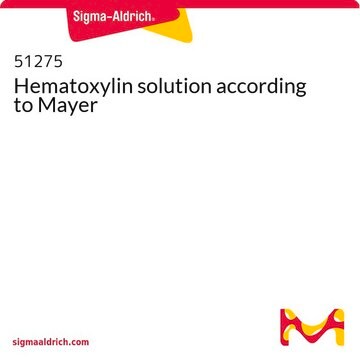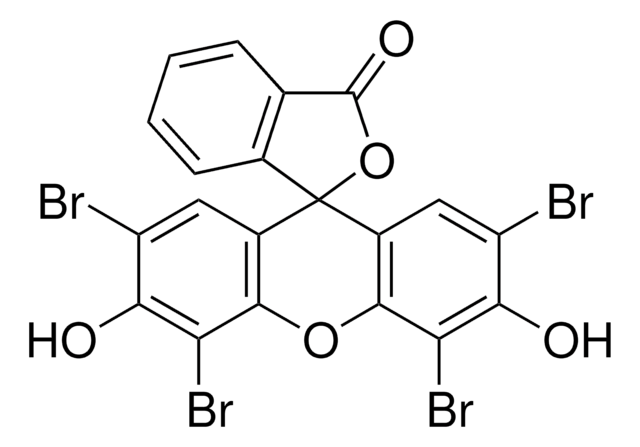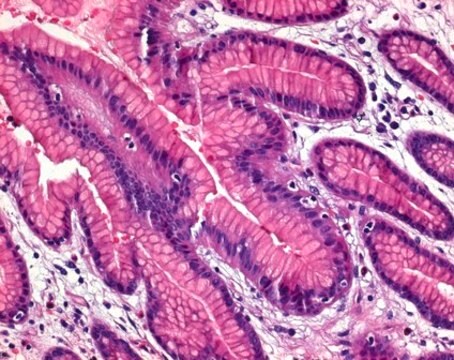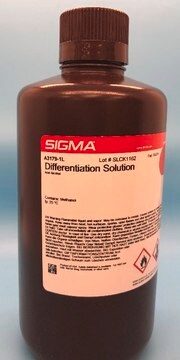03971
Hematoxylin solution according to Delafield
for microscopy
Synonym(s):
Delafield’s hematoxylin
About This Item
Recommended Products
grade
for microscopy
Quality Level
product line
BioChemika
form
liquid
technique(s)
microbe id | staining: suitable
impurities
ammonium alum
methanol
density
0.950-1.044 g/mL at 20 °C
application(s)
diagnostic assay manufacturing
hematology
histology
storage temp.
room temp
suitability
Chlamydia spp.
Histoplasma spp.
Plasmodium spp.
Trichomonas spp.
bacteria
protozoa
spirochetes
SMILES string
Oc1cc2C[C@@]3(O)COc4c(O)c(O)ccc4[C@H]3c2cc1O
InChI
1S/C16H14O6/c17-10-2-1-8-13-9-4-12(19)11(18)3-7(9)5-16(13,21)6-22-15(8)14(10)20/h1-4,13,17-21H,5-6H2/t13-,16+/m0/s1
InChI key
WZUVPPKBWHMQCE-XJKSGUPXSA-N
General description
Application
Not finding the right product?
Try our Product Selector Tool.
Signal Word
Danger
Hazard Statements
Precautionary Statements
Hazard Classifications
Acute Tox. 4 Oral - Flam. Liq. 3 - STOT SE 1
Target Organs
Eyes,Central nervous system
Storage Class Code
3 - Flammable liquids
WGK
WGK 3
Flash Point(F)
107.6 °F - closed cup
Flash Point(C)
42 °C - closed cup
Personal Protective Equipment
Regulatory Listings
Regulatory Listings are mainly provided for chemical products. Only limited information can be provided here for non-chemical products. No entry means none of the components are listed. It is the user’s obligation to ensure the safe and legal use of the product.
EU REACH Annex XVII (Restriction List)
Choose from one of the most recent versions:
Already Own This Product?
Find documentation for the products that you have recently purchased in the Document Library.
Customers Also Viewed
Our team of scientists has experience in all areas of research including Life Science, Material Science, Chemical Synthesis, Chromatography, Analytical and many others.
Contact Technical Service










